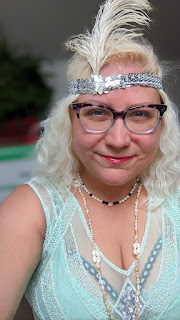----------Interview by Renee Roberson
WOW: Hi Aubrey, and welcome! Your essay really made me stop and think, so thank you for sharing such a personal experience. What are you hoping readers take away from “How to Measure Maximum?”
Aubrey: With this essay/personal experience, I would like for readers to understand the plight of a woman during times of extreme stress and lacking basic necessities such as housing. We live in a tumultuous time for the economy and it's getting worse. Population rates rise but available and affordable housing has not kept pace. This tragedy steadily unfolds in the United States and elsewhere as more and more hardworking people find themselves out on the streets. The median house price in the Portland, Oregon area alone hovers around $400k. I don't know many people that can qualify for a mortgage at that rate. Furthermore, rent averages around $2k a month for a typical two bedroom apartment. Only recently, have businesses begun applauding themselves for paying closer to $15 an hour. At that pay rate a few years ago, I struggled to find housing and slept in my car for over two years.
WOW: I agree on all points. Reading about it in a firsthand account such as yours makes the crisis all the more clear. When did you first decide you wanted to pursue a career in science?
Aubrey: In college, I originally planned to major in History or Anthropology. The job market for those fields seemed extremely competitive so I switched to Biology. At the time, I felt like studying something practical would lead me to a job that paid the bills with a little left over for traveling or other leisurely activities.
WOW: Could you share some life lessons you’ve learned from your travels?
Aubrey: Probably the greatest life lesson I have learned by traveling is just that: to travel. I think it is imperative to discover how other humans live around the country and around the world. In the United States, I have been lucky to have met folks from other countries, learn their cultural values and world perspectives, expanding my own in the process. When I talk to people back home (in Michigan), many of whom have never left the state, or even the town, it is as if I am speaking to the past. They seem stuck and unchanged, encapsulating ideologies and worldviews of a nostalgic sort. I like to think of myself as a continuously evolving creature that craves change and spontaneity. Life is about growth and learning and the best way to do that, in my opinion, is to go out and wander the world.
WOW: You are currently working on a speculative fiction novel. What do you think is the hardest part of creating a body of work in this genre?
Aubrey: Besides finding time to actually do the writing, probably the most challenging endeavor of writing speculative fiction is the research. Though it is fiction, I want to write stories that sound as if they could happen in our lifetime. Space exploration, rudimentary and largely confined to our native solar system, could be a possibility. Discovering exotic fuels that might power that prime directive is also possible. Encountering other life forms that grew up on other planets is also probable at some point. Writing speculative fiction, to me, fuses the imagination with the real. Making that world seem as believable as possible, despite all the aliens and advanced technology, is an arduous journey that, with the proper diligence, can have great incentive.
WOW: That's a great overview and I love that you are working so hard on the research aspect of it as well. Who are some authors who inspire your writing?
Aubrey: I love reading so my personal list is long and spans genres. A few on the top shelf are: Anne Rice's dark fantasies, Margaret Atwood's "The Handmaid's Tale," the hilarious writings of Douglass Adams ("Dirk Gently's Holistic Detective Agency" and "The Hitchhiker's Guide to the Galaxy" series). Also ranking high are: Dan Simmons' "Hyperion" series and Philip K. Dick, whose wildly imaginative stories have provided a lot of inspiration for me. Becky Chambers is becoming a new favorite of mine ("A Closed and Common Orbit"). More women writing "traditionally" male genres is vital to the literary universe because a lot of science fiction out there caters more towards men than women. Chambers not only provides a female perspective but she also explores non-binary genders, a very significant topic in a country that actively fights for and against the rights of LGBTQIA+ communities. A good writer can weave words of gold and honey but a great author can spin a tale so vivid and real that you forget your own life when reading it.
WOW: Losing yourself in a story--that's the absolute best, isn't it? Thank you so much for being here today and we wish you all the luck with your writing endeavors!






0 comments:
Post a Comment